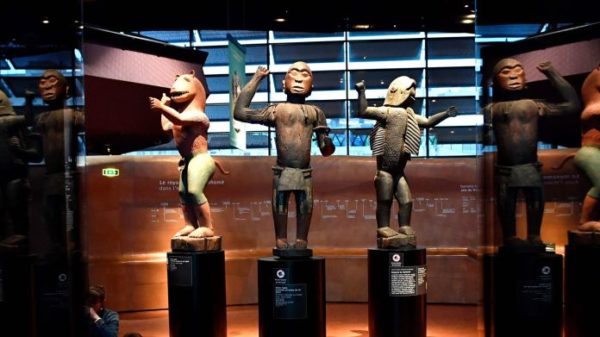By Magaye Gaye *
France does not seem willing to restore all the works of art stolen from Africa during colonization. Of the 90,000 works officially listed, representing 90% of the cultural heritage produced during the occupation, it seems for the moment to be willing to return only 26 in Benin, which is insignificant.
This attitude reflects an unsuitable state of mind exacerbated by legislation to protect an ill-gotten legacy. In fact, Article 3111-1 of the General Code of Public Ownership stipulates that “The property of public persons in the public domain is inalienable and imprescriptible. More specifically, the Act of January 4, 2002, codified in article 451-5 of the Heritage Code, states that “The property constituting the collections of the museums of France belonging to a public person belongs to their public domain and are, as such, inalienable. ”
It should be remembered that the same protection also applies to ill-gotten property seized in France, especially from foreign personalities.
The spoliated cultural heritage certainly has, in view of its ancient character, a certain market value. To cling illegally to such a windfall while announcing the increase in registration fees for non-European foreign students is a management error that will probably scuttle the image of France in Africa. This attitude also supports analysts who argue that the country with excessive debt and a structural budget deficit no longer has the means of its policy. France must change its look on Africa and consider it as a real partner.
Yet a quick reminder shows that civilized nations concerned with international peace have had to correct material mistakes made in their history.
Germany comes after a first wave of restitution in 2011 and 2014 to hand over in 2018 to Namibia the remains of nearly 30 victims killed during a genocide during the colonial era. It also returned to the US state of Alaska a dozen works from the looting in the late nineteenth century of graves belonging to indigenous peoples and who were in a museum in Berlin.
Israel and Germany agreed in 2014 to conduct joint research in museums in both countries to determine the provenance of works of art stolen from Jews during the Nazi dictatorship for restitution.
The United States has returned more than 4,000 hectares of land in Okinawa to Japan.
It is important that certain immediate actions be taken at the international level in the face of the difficulties noted in the restitution of ill-gotten cultural property. Thus the African Union would benefit from taking charge of this file and to submit to the French authorities a formal request for global restitution demanding damages and interest. To this end, the recent outflows of senior authorities in Senegal and the Coast demanding this restitution are encouraging.
The question should also be asked at the level of the United Nations (UN) insofar as it is a heritage stolen by a State which legally must return to its true owners; and all that today tends to threaten international peace must be avoided.
The problem being eminently moral, a point of view expressed by the Vatican on the question could perhaps advance the file.
Like the control programs put in place by the international community on important issues such as nuclear energy, which affect world peace, the UN should convince its members to move towards more justice and equity. entrusting UNESCO, for example, with a mission to identify cultural goods illegally exported from Africa.
As for the French leaders who argue such arguments, Africans are not able to keep such important works (while there are more than 500 museums on the continent) that this debate on works of art is exceeded and that there are other priorities or that it is necessary to internationalize the problem by convening a summit gathering all the former colonizing powers, they must surely be condescending, disrespectful and in flight forward. The fate of a stolen property is to simply be restored. It is also necessary to think of an international law on renditions and African jurists should immediately take up this question and organize themselves to better reinforce the international debate on restitution. A complaint would benefit from being promptly lodged with the competent international courts.
New generations of countries from formerly colonizing countries should face their responsibility in full conscience and avoid perpetuating the mistakes of their predecessors. The world is watching them.
A question to the readers: what would remain Western economies today in the event of restitution of all the badly acquired land and financial cultural heritage?
Magaye GAYE




